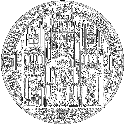| |
|
outline |
note |
| Chap 1 |
M- and Z-estimator |
|
|
| §01 |
Introduction |
|
|
| §02 |
Consistency |
|
le01
|
| §03 |
Asymptotic normality |
|
le02
|
| Chap 2 |
Asymptotic properties of tests |
|
|
| §04 |
Contiguity |
|
le03
le04
|
| §05 |
Local asymptotic normality (LAN) |
|
le05
le06
|
| §06 |
Asymptotic relative efficiency (ARE) |
|
le07
|
| §07 |
Rank tests |
|
|
| §08 |
Asymptotic power of rank tests |
|
le08
le09a
|
| Chap 3 |
Nonparametric estimation by projection |
|
|
| §09 |
Review |
|
|
| §10 |
Noisy version of the parameter |
|
le09b
|
| §11 |
Orthogonal projection |
|
le10
|
| §12 |
Orthogonal projection estimator |
|
le11
le12
|
| §13 |
Minimax optimal estimation |
|
le13
le14
|
| §14 |
Data-driven estimation |
|
le15
le16
le17a
|
|
|
|
|
| Chap 4 |
Nonparametric density estimation |
|
|
| §15 |
Noisy density coefficients |
|
le17b
|
| §16 |
Projection density estimator |
|
le18
|
| §17 |
Minimax optimal density estimation |
|
le19
|
| §18 |
Data-driven density estimation |
|
le20
le21
|
|
|
|
|
| Chap 5 |
Nonparametric regression |
§01-§22 |
(02/01/2023) |
| §19 |
Noisy regression coefficients |
|
le22
|
| §20 |
Projection regression estimator |
|
le23
|
| §21 |
Minimax optimal regression/td>
| |
le24
|
| §18 |
Data-driven regression |
|
le25
|
|
|
|
|

